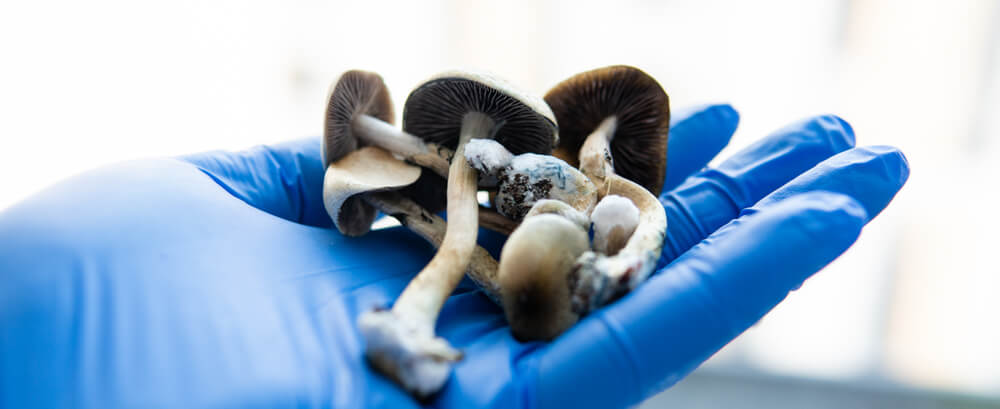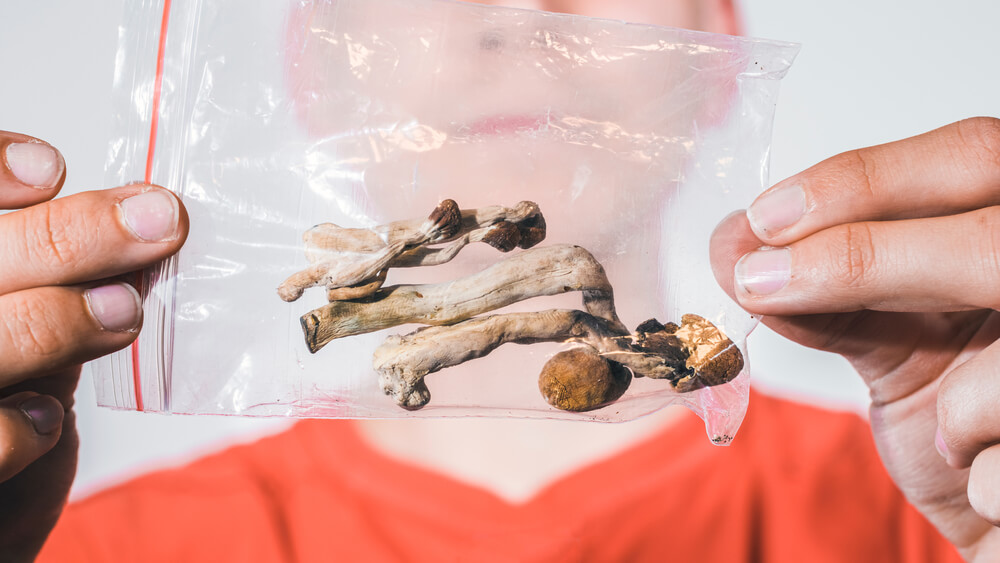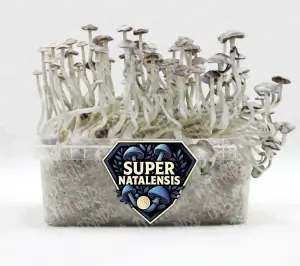A psychedelic revival: Psilocybin approved in Germany
What if the keys to healing the deepest wounds of the mind were hidden in substances we've demonized for decades? In July 2025, Germany took a revolutionary step by becoming the first country in the European Union to approve a compassionate use program for psilocybin —the active ingredient in magic mushrooms—to treat treatment-resistant depression.
This milestone, led by the Central Institute of Mental Health (ZI) in Mannheim and the OVID Clinic in Berlin, is not just a medical breakthrough: it's a call to rethink our relationship with psychedelics in a society that has divided "good drugs" from "bad drugs" with alarming hypocrisy. In Alchimia, we explore how this program underscores the importance of set (mindset) and setting (environment), transforming powerful tools like psilocybin into healing allies.
Imagine millions of people struggling with depression that doesn't respond to conventional antidepressants or standard therapies—20-30% of cases in Germany and worldwide. Wouldn't it make sense to explore other treatment options?

The use of Psilocybin in therapeutic contexts
For these patients, life becomes a cycle of hopelessness. Here is where psilocybin comes into play, a natural compound found in magic mushrooms that acts on serotonin 5-HT2A receptors in the brain, inducing altered states of consciousness that can dissolve rigid thought patterns and open doors to new emotional perspectives.
Is it not magic, or is it? Studies such as the EPIsoDE, conducted by ZI Mannheim in collaboration with the Charité Berlin and the MIND Foundation, have shown that high doses of psilocybin (such as 25 mg, which would be roughly equivalent to 2.5 g of dried mushrooms) combined with psychotherapy can lead to positive responses in around 30% of participants.
The program, approved by the Federal Institute for Drugs and Medical Devices (BfArM) on July 11, 2025, allows the use of psilocybin (supplied as PEX010 by the Canadian company Filament Health) in exceptional cases. Eligible patients are adults with drug-resistant depression, with no viable approved treatment options and no opportunity to participate in clinical trials.
Of course, the therapy is conducted in controlled settings: inpatient in Mannheim and at the day clinic in Berlin, with preparatory sessions, supervised administration, and intensive psychotherapeutic follow-up. "In selected cases, the therapeutic use of psilocybin can be a medically and ethically viable option, always under strictly controlled conditions," says Prof. Dr. Gerhard Gründer, the program's pioneer.
Dr. Andrea Jungaberle, OVID's medical director, emphasizes: "It is not administered in isolation, but as part of a comprehensive approach that considers the patient's psyche, body, and life context."
A challenge to our modern prejudices
But let's go beyond the scientific facts: this breakthrough forces us to confront the hypocrisy of our era. Why have we stigmatized psychedelics as "bad drugs" while embracing synthetic opioids or antidepressants with serious side effects? The dominant narrative, born of the moral panic of the 1960s and 1970s, ignores that indigenous cultures have used these substances for millennia in healing rituals and vision quests guided by a carefully designed mindset and environment, often accompanied by shamans.

Today, in a society obsessed with productivity and control, we've forgotten that true mental health isn't just about suppressing symptoms, but about exploring our inner selves to find purpose and connection. What if psychedelics, used responsibly, can help us break through modern isolation, fostering empathy and collective resilience?
Of course, the program is not without risks; it can induce acute anxiety or, rarely, psychotic episodes if not managed properly, so patients predisposed to psychosis are excluded. Furthermore, at least for now, it is temporary (until July 2026) and limited, with demand likely to outstrip supply, as has happened in Switzerland.
However, it represents an interesting paradigm shift: from prohibition to responsible integration. The data collected will drive Phase III studies, potentially accelerating psilocybin's full approval in Europe, following the path of the U.S.
This moment inspires us to dream of a future where psychedelics are not taboo, but tools for a more compassionate society. Germany shows us that change is possible: by challenging prejudices, we open doors to innovation. Are we ready to rewrite history, recognizing that the power of these substances lies in how they are used? At Alchimia, we believe so, and this is just the beginning of a psychedelic renaissance that could transform our understanding of the human mind.
Sources:
- ZI Mannheim. (2025, julio). Compassionate Use Programm für Psilocybin erstmals in Deutschland möglich. Recuperado de https://www.zi-mannheim.de/institut/news-detail/compassionate-use-programm-fuer-psilocybin-erstmals-in-deutschland-moeglich.html
- OVID Clinics. (s.f.). News. Recuperado de https://www.ovid-clinics.de/news
- OVID Clinics. (s.f.). Psilocybin-Therapie Berlin. Recuperado de https://www.ovid-clinics.de/psilocybin-therapie-berlin
- ZI Mannheim. (s.f.). Psychedelika in Psychiatrie und Psychotherapie. Recuperado de https://www.zi-mannheim.de/behandlung/klinik-psychiatrie/psychedelika-in-psychiatrie-und-psychotherapie.html
- Psychedelic Alpha. (2025, julio 31). Germany Establishes EU's First Psilocybin Compassionate Access Program. Recuperado de https://psychedelicalpha.com/news/germany-establishes-eus-first-psilocybin-compassionate-access-program
- Euronews. (2025, julio 31). Germany to allow some depressed patients to try psychedelics. Recuperado de https://www.euronews.com/health/2025/07/31/germany-to-allow-some-depressed-patients-to-try-psilocybin-amid-psychedelic-medicine-boom











